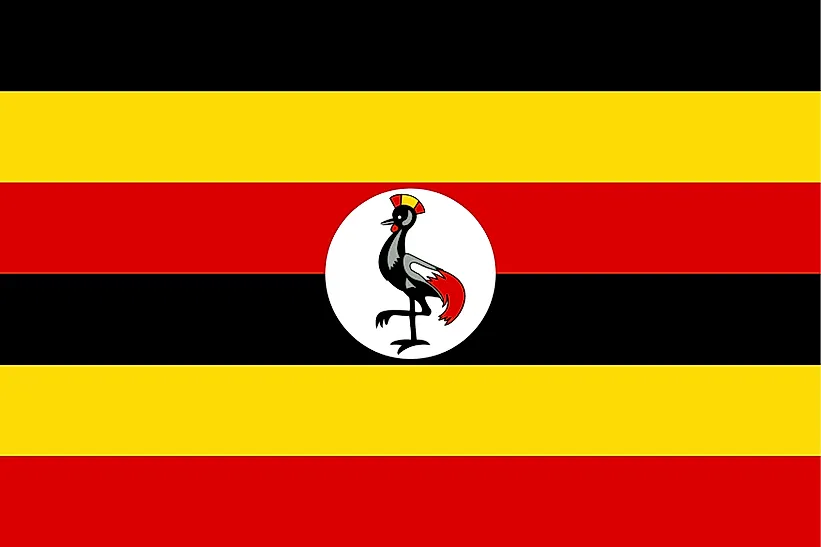
Uganda
| Continent | Africa |
| Capital | Kampala |
| Population | 38,319,241 |
| GDP | $84.93 Billion |
| GDP per Capita | $2,100 |
| Dialing Code | +256 |
| ISO Code (2-letter) | UG |
| ISO Code (3-letter) | UGA |
Uganda Landscapes






About Uganda
Welcome to Uganda, a nation of extraordinary biodiversity and cultural richness. With approximately 45 million people across 241,550 square kilometers, Uganda combines remarkable wildlife heritage with vibrant traditions, earning its nickname as the “Pearl of Africa” from Winston Churchill.
Geographic Features and Natural Beauty
Uganda’s geography encompasses diverse landscapes from snow-capped mountains to vast lakes. The country features the source of the Nile River, the Rwenzori Mountains, and Lake Victoria, Africa’s largest lake.
The landscape includes tropical forests, savanna grasslands, and volcanic regions. The country’s varied terrain creates diverse ecosystems supporting unique wildlife including mountain gorillas and chimpanzees.
Protected areas include Bwindi Impenetrable National Park, Queen Elizabeth National Park, and Murchison Falls National Park. The country’s commitment to conservation focuses on preserving its extraordinary biodiversity while promoting sustainable tourism.
Cultural Heritage and Traditions
Ugandan culture represents a rich tapestry of over 50 ethnic groups. The country’s heritage includes the ancient Buganda Kingdom, distinctive music traditions, and vibrant performing arts.
Traditional arts include bark cloth making (UNESCO Intangible Cultural Heritage), traditional music featuring the endemic adungu harp, and various dance forms. Cultural practices feature traditional ceremonies, royal customs, and community celebrations.
Ugandan cuisine reflects its diverse influences, featuring dishes like matoke (steamed plantains), groundnut sauce, and various lake fish preparations. The tradition of community gatherings and storytelling remains central to social life.
Historical Journey
Uganda’s history spans from ancient kingdoms through colonial period to independence. The country was home to several powerful kingdoms, most notably Buganda.
Significant periods include pre-colonial kingdoms, British protectorate status, independence in 1962, and recovery from political turbulence. The country’s resilience through challenging times has shaped its modern identity.
Modern Economic Landscape
Today’s Ugandan economy focuses on agriculture, services, and emerging oil sector development. The country possesses significant agricultural potential and natural resources.
Recent initiatives emphasize infrastructure development, digital transformation, and sustainable tourism growth. Uganda’s young population and natural wealth support its development aspirations.
International Relations and Global Position
Uganda maintains active participation in East African and African organizations while fostering global partnerships. The country’s stability and resources extend its regional influence.
Did You Know?
• Uganda is home to half the world’s remaining mountain gorillas?
• The country has the world’s youngest population, with a median age of 15.7 years?
• Uganda is one of only two countries where the equator crosses snowcapped mountains?
• The country produces some of the world’s finest coffee?
Conclusion
Uganda represents a unique combination of natural wonders and cultural diversity. From its mountain gorillas to its ancient kingdoms, from its traditional arts to its modern developments, Uganda continues to evolve while preserving its natural and cultural heritage. As it addresses challenges including sustainable development and resource management, Uganda remains committed to progress while maintaining its position as the Pearl of Africa.